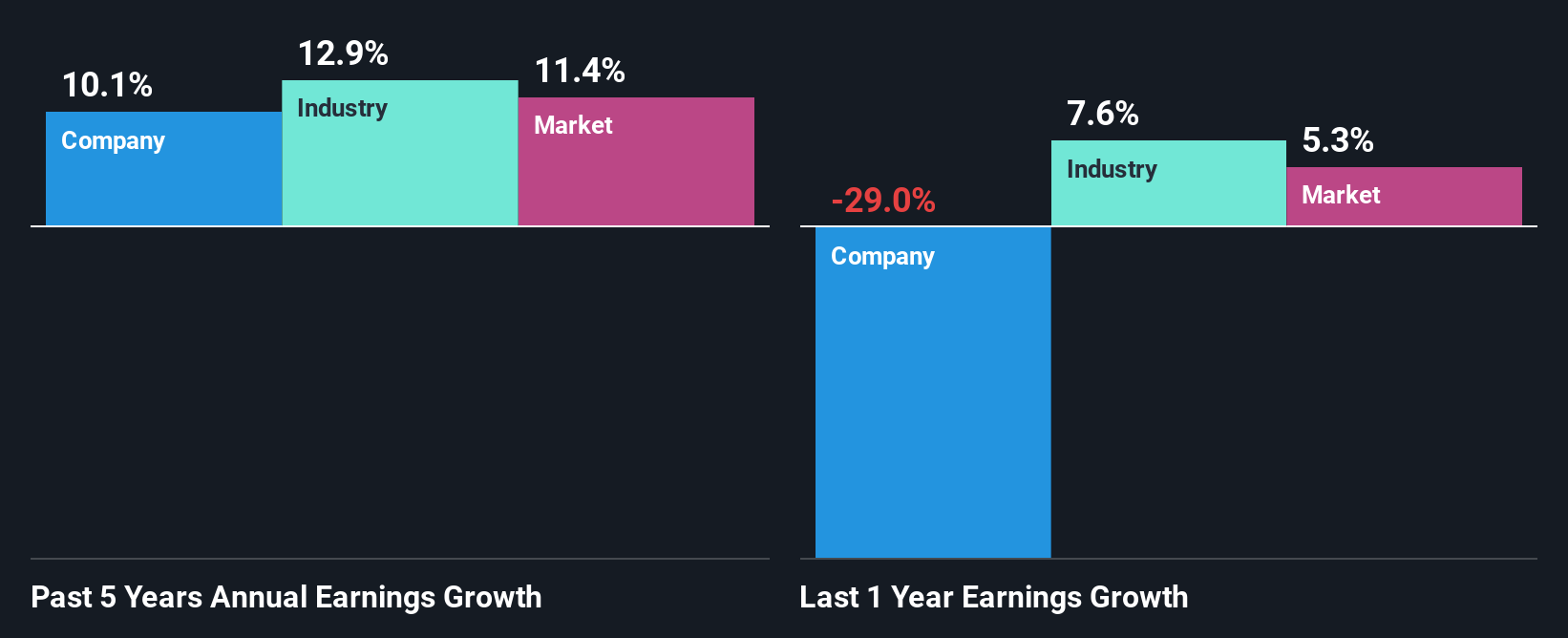Is Tetra Tech, Inc.'s (NASDAQ:TTEK) Stock's Recent Performance Being Led By Its Attractive Financial Prospects?
Tetra Tech (NASDAQ:TTEK) has had a great run on the share market with its stock up by a significant 21% over the last three months. Given that the market rewards strong financials in the long-term, we wonder if that is the case in this instance. Particularly, we will be paying attention to Tetra Tech's ROE today.
ROE or return on equity is a useful tool to assess how effectively a company can generate returns on the investment it received from its shareholders. In short, ROE shows the profit each dollar generates with respect to its shareholder investments.
How To Calculate Return On Equity?
ROE can be calculated by using the formula:
Return on Equity = Net Profit (from continuing operations) ÷ Shareholders' Equity
So, based on the above formula, the ROE for Tetra Tech is:
12% = US$188m ÷ US$1.6b (Based on the trailing twelve months to March 2025).
The 'return' is the yearly profit. One way to conceptualize this is that for each $1 of shareholders' capital it has, the company made $0.12 in profit.
View our latest analysis for Tetra Tech
Why Is ROE Important For Earnings Growth?
Thus far, we have learned that ROE measures how efficiently a company is generating its profits. Based on how much of its profits the company chooses to reinvest or "retain", we are then able to evaluate a company's future ability to generate profits. Generally speaking, other things being equal, firms with a high return on equity and profit retention, have a higher growth rate than firms that don’t share these attributes.
Tetra Tech's Earnings Growth And 12% ROE
To begin with, Tetra Tech seems to have a respectable ROE. Even when compared to the industry average of 13% the company's ROE looks quite decent. This certainly adds some context to Tetra Tech's moderate 10% net income growth seen over the past five years.
We then compared Tetra Tech's net income growth with the industry and found that the company's growth figure is lower than the average industry growth rate of 13% in the same 5-year period, which is a bit concerning.

The basis for attaching value to a company is, to a great extent, tied to its earnings growth. The investor should try to establish if the expected growth or decline in earnings, whichever the case may be, is priced in. By doing so, they will have an idea if the stock is headed into clear blue waters or if swampy waters await. Is TTEK fairly valued? This infographic on the company's intrinsic value has everything you need to know.
Is Tetra Tech Efficiently Re-investing Its Profits?
Tetra Tech's three-year median payout ratio to shareholders is 18% (implying that it retains 82% of its income), which is on the lower side, so it seems like the management is reinvesting profits heavily to grow its business.
Additionally, Tetra Tech has paid dividends over a period of at least ten years which means that the company is pretty serious about sharing its profits with shareholders. Based on the latest analysts' estimates, we found that the company's future payout ratio over the next three years is expected to hold steady at 18%. However, Tetra Tech's ROE is predicted to rise to 20% despite there being no anticipated change in its payout ratio.
Conclusion
On the whole, we feel that Tetra Tech's performance has been quite good. Particularly, we like that the company is reinvesting heavily into its business, and at a high rate of return. As a result, the decent growth in its earnings is not surprising. Having said that, looking at the current analyst estimates, we found that the company's earnings are expected to gain momentum. To know more about the latest analysts predictions for the company, check out this visualization of analyst forecasts for the company.
Have feedback on this article? Concerned about the content? Get in touch with us directly. Alternatively, email editorial-team (at) simplywallst.com.
This article by Simply Wall St is general in nature. We provide commentary based on historical data and analyst forecasts only using an unbiased methodology and our articles are not intended to be financial advice. It does not constitute a recommendation to buy or sell any stock, and does not take account of your objectives, or your financial situation. We aim to bring you long-term focused analysis driven by fundamental data. Note that our analysis may not factor in the latest price-sensitive company announcements or qualitative material. Simply Wall St has no position in any stocks mentioned.
 Wall Street Journal
Wall Street Journal